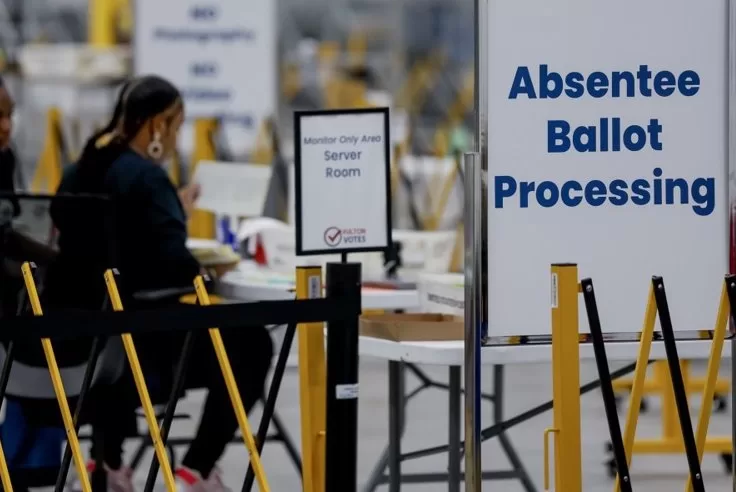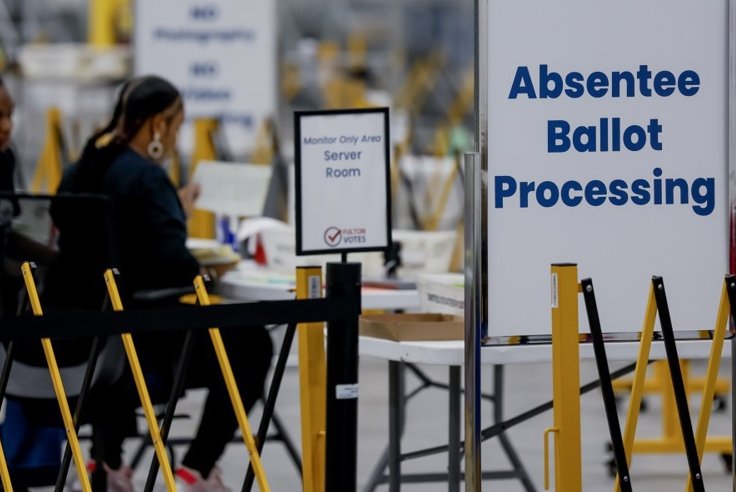1 of 3 | Pennsylvania’s Supreme Court ordered state county election officials on Monday to not count disputed ballots in the U.S. Senate race between Democratic Sen. Bob Casey and his Republican challenger Dave McCormick.
In a 4-3 vote, the court ordered elections officials to exclude misdated and undated ballots from their count. File photo by Erik S. Lesser/EPA-EFE
Nov. 18 (UPI) — Pennsylvania’s Supreme Court ordered state county election officials on Monday to not count “invalid” mail-in ballots in the U.S. Senate race between Democratic Sen. Bob Casey and his Republican challenger, Dave McCormick.
In a 4-3 vote, the court ordered elections officials to exclude misdated and undated ballots from their count. Final results of Pennsylvania’s recount are expected on Nov. 27.
“It is critical to the rule of law that individual counties and municipalities and their elected and appointed officials, like any other parties, obey orders of this Court,” wrote Justice David Wecht.
McCormick and Casey are within 0.5% of each other in their race for Casey’s Senate seat. McCormick currently leads Casey by 17,700 votes, according to the latest election results from the Pennsylvania Department of State.
As Pennsylvania’s senate election results mandate a statewide recount, certain mail-in ballots have been disputed as to whether they should be added to the count. The ballots in question arrived on time but were in envelopes that did not have the correct dates handwritten by voters.
“We have clarified that mail-in and absentee ballots that fail to comply with the requirements of the Pennsylvania Election Code, shall not be counted for purposes of the election held on Nov. 5, 2024,” the Democratic-majority high court wrote in Monday’s ruling.
“The Election Code commands absentee and mail-in electors to date the declaration that appears upon ballot return envelopes, and failure to comply with that command renders a ballot invalid as a matter of Pennsylvania law,” the court added.
Monday’s ruling reiterates the court’s earlier position that the disputed ballots — which could number in the thousands — should not be included in the recount, despite challenges by three Democratic-majority election boards in Philadelphia, Montgomery and Bucks Counties.
“No more excuses,” Republican National Committee chairman Michael Whatley, wrote in a post on X after the court’s ruling. “Election officials in Bucks, Montgomery, Philadelphia and other counties have absolutely no choice.”
McCormick, who has been declared the winner in Pennsylvania’s U.S. Senate race, and the Republican National Committee filed lawsuits last week against county officials who counted undated or misdated ballots in the recount, as Casey has yet to concede. Democrats have argued not including the ballots would violate voters’ constitutional rights.
“It is a pretty stupid thing to not count someone’s vote simply because they didn’t date an envelope for a ballot,” Bob Harvie Jr., chair of Buck County’s elections board, told elections officials last week as he urged them to count 405 ballots that did not meet the state’s date requirement. “The law needs to be changed.”
Republicans claim counting the ballots would violate the court’s recent orders to uphold state law, which requires voters date their mail-in ballot’s return envelope for security reasons.
“We won! The Pennsylvania Supreme Court issued a ruling today ordering that all 67 Pennsylvania County Boards of Election shall comply with their earlier ruling and shall not count misdated and undated ballots,” Bucks County GOP wrote Monday in a post on X.
“This is a victory for election integrity and the rule of law. We shall continue to work hard and be vigilant.”

